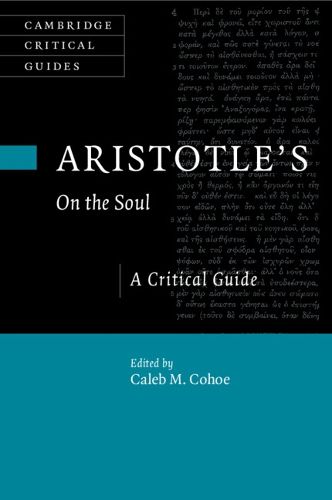Readings Newsletter
Become a Readings Member to make your shopping experience even easier.
Sign in or sign up for free!
You’re not far away from qualifying for FREE standard shipping within Australia
You’ve qualified for FREE standard shipping within Australia
The cart is loading…






Aristotle's On the Soul aims to uncover the principle of life, what Aristotle calls psuche (soul). For Aristotle, soul is the form which gives life to a body and causes all its living activities, from breathing to thinking. Aristotle develops a general account of all types of living through examining soul's causal powers. The thirteen new essays in this Critical Guide demonstrate the profound influence of Aristotle's inquiry on biology, psychology and philosophy of mind from antiquity to the present. They deepen our understanding of his key concepts, including form, reason, capacity, and activity. This volume situates Aristotle in his intellectual context and draws judiciously from his other works as well as the history of interpretation to shed light on his intricate views. It also highlights ongoing interpretive debates and Aristotle's continuing relevance. It will prove invaluable for researchers in ancient philosophy and the history of science and ideas.
$9.00 standard shipping within Australia
FREE standard shipping within Australia for orders over $100.00
Express & International shipping calculated at checkout
Aristotle's On the Soul aims to uncover the principle of life, what Aristotle calls psuche (soul). For Aristotle, soul is the form which gives life to a body and causes all its living activities, from breathing to thinking. Aristotle develops a general account of all types of living through examining soul's causal powers. The thirteen new essays in this Critical Guide demonstrate the profound influence of Aristotle's inquiry on biology, psychology and philosophy of mind from antiquity to the present. They deepen our understanding of his key concepts, including form, reason, capacity, and activity. This volume situates Aristotle in his intellectual context and draws judiciously from his other works as well as the history of interpretation to shed light on his intricate views. It also highlights ongoing interpretive debates and Aristotle's continuing relevance. It will prove invaluable for researchers in ancient philosophy and the history of science and ideas.